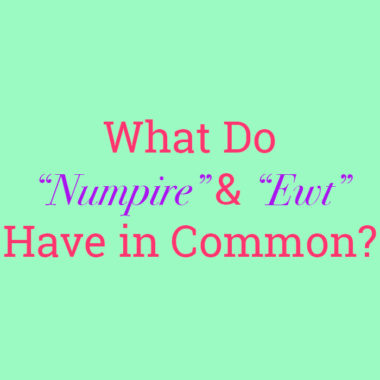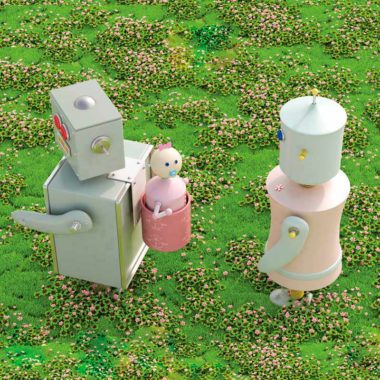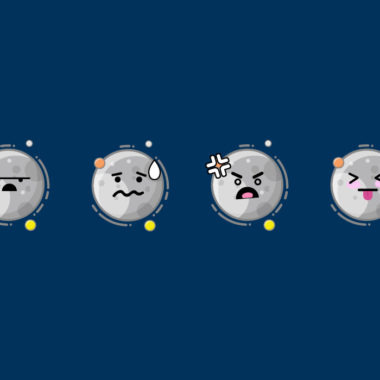Tag Archives: interest-language
-
What Do “Numpire” and “Ewt” Have in Common?
These funny-looking words may not be recognizable, but they were the ancestors of our modern-day umpire and newt. So, how did they evolve into their current forms? Because of the pesky letter n, the indefinite article a/an, and the fact that a bunch of English-speakers hundreds of years ago had hearing problems. The bouncing n and rebracketing Words like numpire and ewt underwent a process we’re playfully calling the …
-
Who’s To Blame For Weird English Spellings?
Let’s be honest: It’s practically impossible to be a “good” speller in English. The way words are spelled in English just don’t match how they are pronounced. Why, English language, why? Well, we can start by blaming William Caxton and the printing press. Diving into the historical context Let’s begin at the beginning, though: England, 1476. Norman French presence was in decline as the Bubonic Plague …
-
Solving the Mystery Of Babbling Baby Talk
“Baby needa burpie?! Yeees?? [burp] Oh! WHOOOZa good baby? YOU are! Yeeesssssyouare!” Whether you find this adorable or aggravating, gaggles of parents around the world speak to their infants in singsong “goos” and “gahs.” The style has diverse names, from baby talk and motherese (but what about Dad?) to the neutral and more official-sounding child- or infant- directed speech. Whatever you choose to call it, …
-
These Word Pairs Look Like They’re Related, But Surprisingly They’re Not
Pens and pencils; male and female. These words sound alike, but they are actually completely unrelated. Thanks, English.
-
The Dictionary Just Got A Little Bigger
2013 was an exciting year for the English vocabulary. Some long-simmering terms like twerk bounced into the spotlight, while new coinages (from the trendy cronut and selfie to the serious Obamacare) cemented their place in the English language. As the English language grows and evolves, so must our dictionary. Here are just a few words recently added to Dictionary.com: Google Glass DWT bitcoin binge-watch confusticate …
-
What Is Lost When A Language Goes Extinct?
Are some languages able to express certain ideas better than others? Are there concepts that exist in particular languages and nowhere else? As more and more languages become extinct, linguists are realizing that they contain a type of knowledge beyond simply a different set of words and grammar. In the next fifty years, linguists believe that 3,500 languages will go extinct. As globalization has linked markets and communities, …
-
A Brief History Of The Letter H
Though it’s a high-value letter in Scrabble and Words with Friends, H is a relatively common letter. Statistically speaking, it is the eighth most commonly used letter in the English language. That’s because H is usually paired with other consonants like wh, ch, sh, and gh. H is found in the most common two-letter pair (th) and in the most common three-letter combination (the). (The letter …
-
What Does It Mean To Be “Fluent” In A Language?
We have all heard how differently people in London, New York, or Baton Rouge speak English, but are those different speakers still fluent in English? Where does accent stop and fluency begin? What does fluency mean? Fluency is defined as “being able to speak and write quickly or easily in a given language.” It comes from the Latin word fluentem meaning “to flow.” What does accent mean? …
-
Do Dogs Actually Understand Human Language?
Anyone who has ever seen their dog hop to attention when they used the word “treat” knows that dogs obviously understand the same words as humans. But is it accurate to say that animals use language? Man’s best friend is hardly the only animal capable of amazing humans with communication skills. Extensive studies using gestural communication (sign language) explore the cognitive potential in the great apes. …
-
Is Ironic The Most Abused Word In English?
“That is sooooo ironic.” This sentence is used frequently—and usually incorrectly—in American English. Often the word ironic is misused to remark on a coincidence, such as This is the third time today we’ve run into each other. How ironic. It is also mistakenly used to describe something out of the ordinary or unusual: Yesterday was a beautiful, warm day in November. It was really ironic. …










